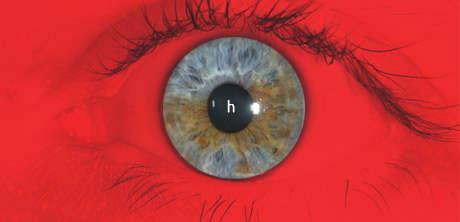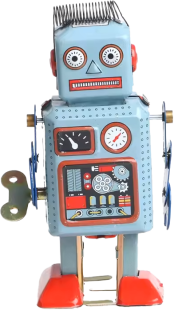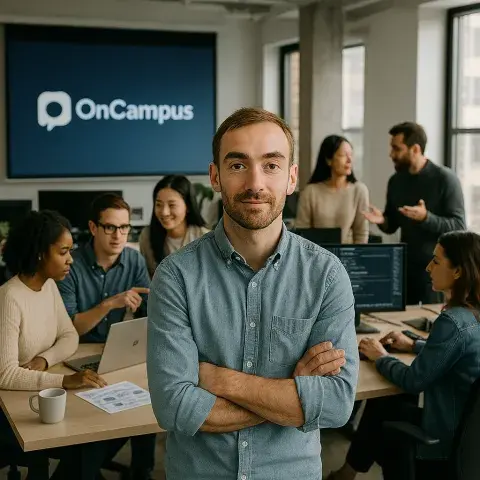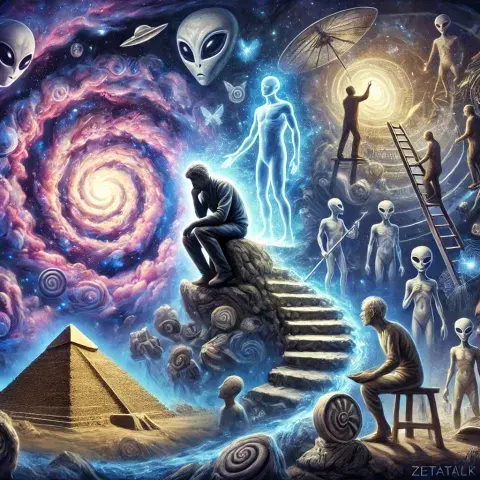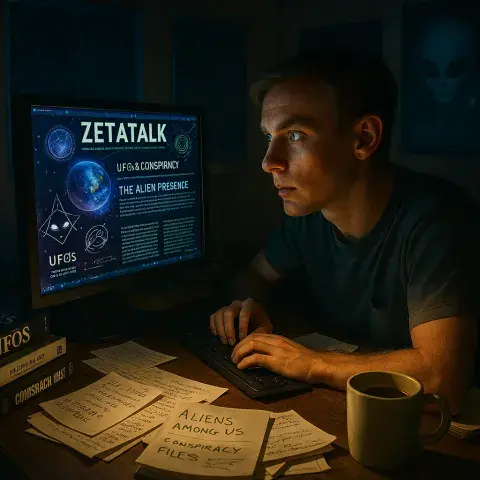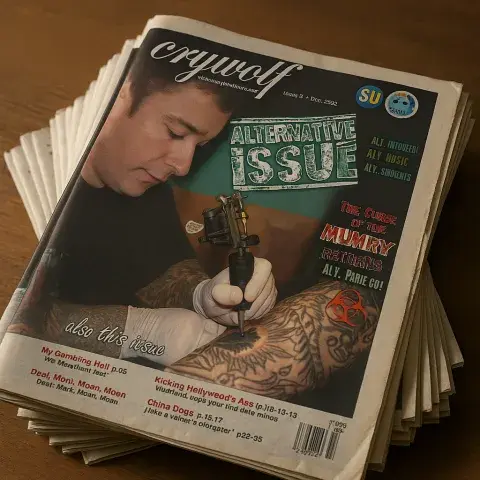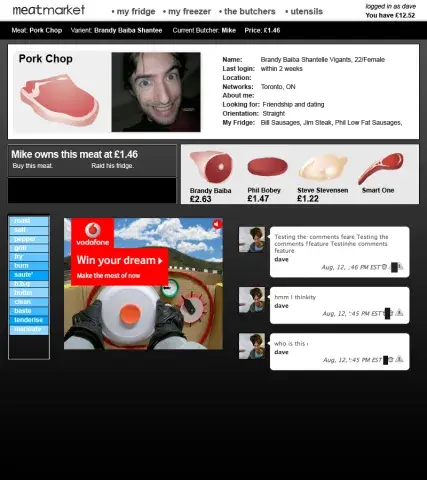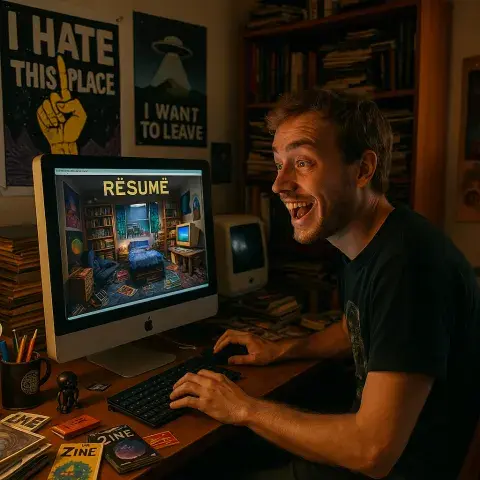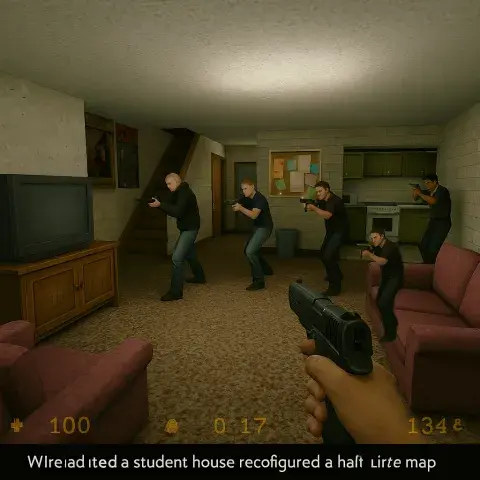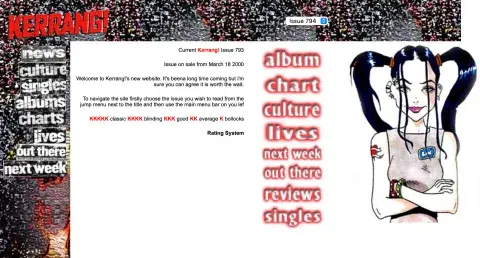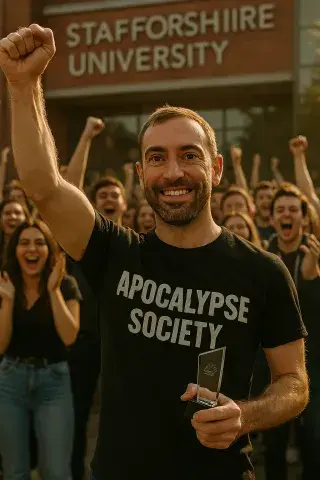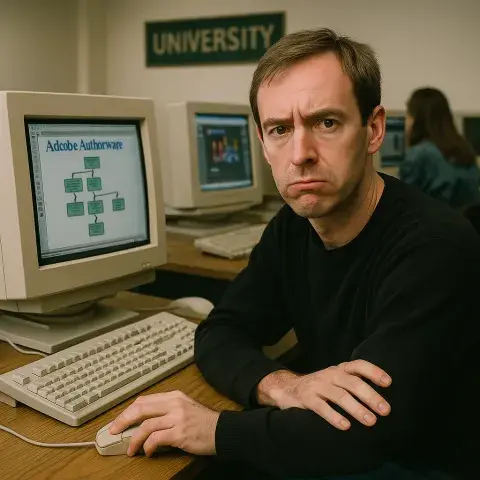Chapter 49 - Monk, The Moon, and a Message in the Crowd
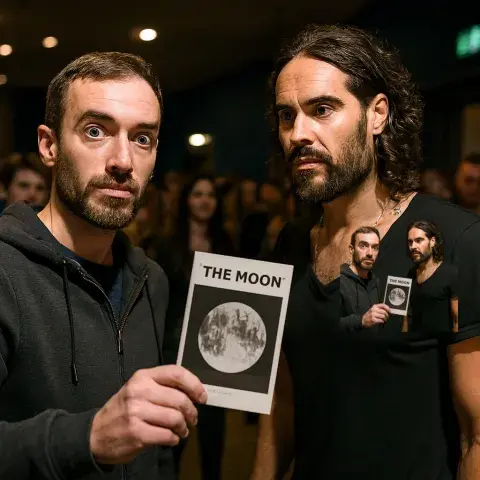
After my UFO experience, I was buzzing with energy and ideas. I felt like I had stumbled upon something profound—something worth sharing. Fuelled by inspiration, I wrote down the story of my experience in detail. If people had actually read it, they might have seen how deeply it resonated with me and how much thought I had put into it. But the responses, or lack thereof, were disheartening. My story seemed to vanish into the void, met with indifference from those I shared it with.
One particular incident stood out during this time. There was a girl I used to work with named ‘Sarah’. She was incredibly sweet but had a bossy streak that could rub you the wrong way. While I was brainstorming ways to get my story out there, I got the idea to stand out to Capri Anderson. I thought if I could catch her attention, she might remember me and help deliver my story to Russell Brand. It was a bit of a long shot, sure, but I was determined.
To make an impression, I posted a public message that I hoped Capri would see. Sarah caught wind of it and took the opportunity to mock me at work. I wasn’t about to let her ridicule slide. I defended myself fiercely, pointing out that Capri was a real person I actually knew, not just some abstract idea. My reasoning? Well, my partner at the time had dreamt about Russell Brand, and the thought lingered in my mind. It felt like a sign, a cosmic nudge toward something larger.
I’ll admit, the whole situation was bizarre—a mix of heartfelt ambition, dream interpretation, and workplace drama. But that’s the way my life often seemed to play out: moments of serendipity tangled with skepticism from those around me.
Amazingly, Capri actually responded to my message. Whether she followed through and delivered it to Russell Brand, I’ll never truly know. But at that point, I decided to let the universe take over. If the message was meant to reach him, it would.
It felt like a strange twist of fate when I noticed Russell had begun performing small, local shows during his Trews era—a time when he was stirring the pot with controversial takes and thought-provoking commentary. Something about his shift in focus resonated with me, and before I knew it, I found myself regularly attending his events. “Stalking” might be a bit of an exaggeration, but I was definitely persistent in trying to figure out how to get my message to him.
Now, let me clarify something: I’m not the type to yell from the audience or make a big public scene. Shyness runs deep in my veins, so I needed a different approach. My plan was to get close to him, but without stepping too far out of my comfort zone. As luck would have it, Russell made that surprisingly easy. After his shows, he’d often linger, mingling with the audience. It didn’t take much to notice the pattern—he was presumably sticking around to pick up some skirt, as they say.
For me, his post-show routine was an opportunity. I wasn’t there to fanboy or fawn over him; I had a purpose, and I just needed the right moment. Week after week, I’d observe, trying to muster the courage and clarity to speak to him directly. It wasn’t easy, but the mix of hope, determination, and sheer awkwardness kept me coming back.
It all came down to one moment at work. Russell was doing another one of his small shows, and I decided it was time to finally put a copy of The Moon, a deeply personal ZetaTalk zine I’d made—directly into his hands. This wasn’t just an impulse; it felt like the culmination of everything I’d been working toward. There was just one problem: the show started at 5 PM, and it was a good 30 minutes away.
To make it, I’d have to leave work a little early. Now, I’d been at the company long enough to feel justified in granting myself this small favour. How often do you get to hand-deliver something to someone who might actually understand? So I made my decision and announced I’d be heading out before the end of the day.
That’s when Sarah found out. And, oh boy, it was like I’d declared war. Sarah, with her sweet-but-bossy demeanour, wasn’t having any of it. She acted like I’d committed some cardinal sin, and before I knew it, a full-blown office drama had erupted. To her, this was unacceptable—leaving early for something she couldn’t understand or see the value in.
But I wasn’t backing down. I stuck to my guns, calmly (or at least semi-calmly) explaining that this was something I had to do. No excuses, no backing out. The office could have its WW3 moment, but I was already mentally halfway to the venue.
When the clock hit my self-declared departure time, I grabbed my things and left. It felt a little rebellious, sure, but more than that, it felt right. This was my chance to connect with someone who might understand the bigger picture, someone who could take my story further than I ever could on my own.
After his gig, I stood in the crowd, watching Russell scan the room. His eyes darted across the faces, searching for something—or someone—and then they landed on me. For a split second, I froze. Did he recognise me? Before I could even process it, he started moving toward me, weaving through the audience with purpose. When we met in the middle of the room, he looked at me with that unmistakable Russell Brand intensity and said, "It's Monk, isn't it?"
I couldn’t believe it. Not only had he remembered me, but he’d clearly been reading my emails! That surreal moment hung in the air, validating every ounce of effort, every risk I’d taken to reach him.
From there, we drifted through the crowd together, heading toward the exit. My heart raced as we walked, knowing I had to make my move. By the time we reached the door, I felt the weight of The Moon in my hand—a tangible piece of my story, ready to cross into his world.
With one swift motion, I extended it to him. He took it without hesitation, like it was the most natural exchange in the world. And just like that, the door shut behind him.
For a moment, I stood there in disbelief. I’d done it. The Moon was in Russell Brand’s hands. Whether it would resonate with him, whether it would lead to something greater—I had no control over that. All I knew was that I’d seized the moment, and now it was up to the universe.
Maybe he read it on the train. Maybe he threw it in a bin. Either way, I gave it everything.
